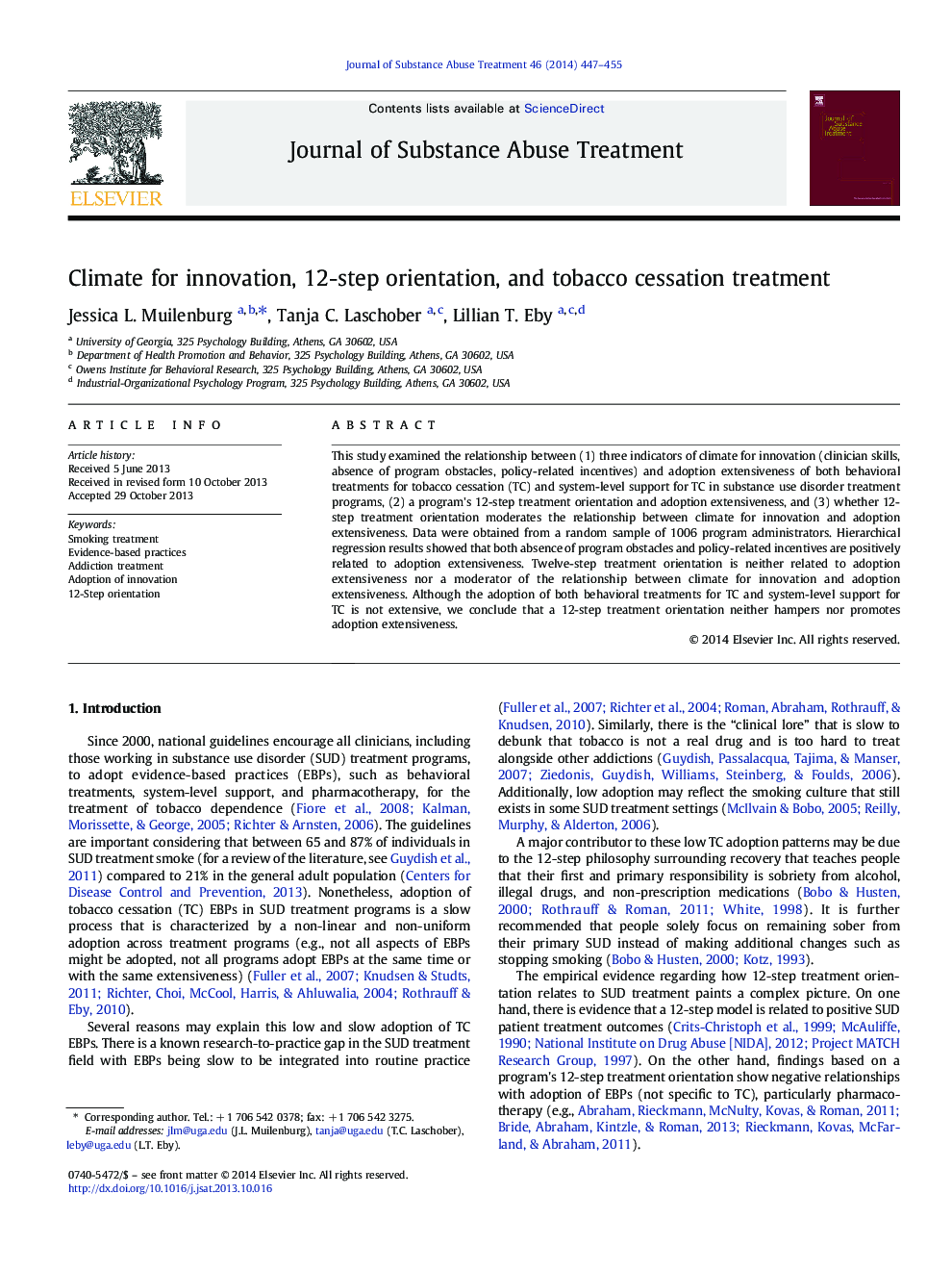| Article ID | Journal | Published Year | Pages | File Type |
|---|---|---|---|---|
| 10302685 | Journal of Substance Abuse Treatment | 2014 | 9 Pages |
Abstract
This study examined the relationship between (1) three indicators of climate for innovation (clinician skills, absence of program obstacles, policy-related incentives) and adoption extensiveness of both behavioral treatments for tobacco cessation (TC) and system-level support for TC in substance use disorder treatment programs, (2) a program's 12-step treatment orientation and adoption extensiveness, and (3) whether 12-step treatment orientation moderates the relationship between climate for innovation and adoption extensiveness. Data were obtained from a random sample of 1006 program administrators. Hierarchical regression results showed that both absence of program obstacles and policy-related incentives are positively related to adoption extensiveness. Twelve-step treatment orientation is neither related to adoption extensiveness nor a moderator of the relationship between climate for innovation and adoption extensiveness. Although the adoption of both behavioral treatments for TC and system-level support for TC is not extensive, we conclude that a 12-step treatment orientation neither hampers nor promotes adoption extensiveness.
Related Topics
Life Sciences
Neuroscience
Biological Psychiatry
Authors
Jessica L. Muilenburg, Tanja C. Laschober, Lillian T. Eby,
